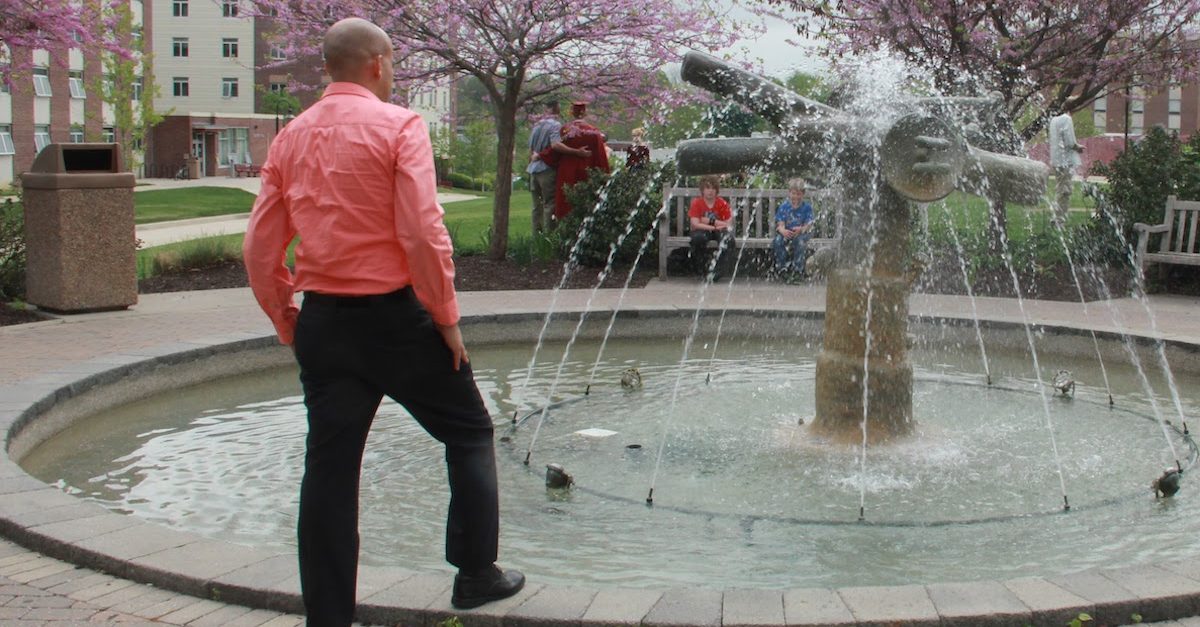Oh, the glory days of college…
Aren’t those the days to cherish?
Pulling “all-nighters,” transitioning from classes to a part-time job, eating free pizzas in exchange for volunteer work, or getting the munchies at 2 a.m. on a Thursday night were all part of my college experience.
After surviving college, graduation day arrives, and you now have a ticket to a better life and a better paying job.
However, there are some important lessons that you may not have learned along the way. I don’t live with regrets, but if I could go back in time to May of 2000, my graduation, and give myself some advice, I would tell myself as an undergrad to go against the herd and follow the rules below to live an even better life.
1. Keep your housing costs low
I’d start with this: now that you’ve graduated from college, you must be wary of lifestyle inflation. If you don’t, your spending will rise as your income rises, making it more difficult to save or get out of debt. Finally, you could be stuck in a rat race just to pay the bills until you’re old, frail, and unable to move, let alone travel around the world.
You’ll no longer be a broke college student, and with more money comes more responsibilities. (Yes, Spiderman is returning to the big screen with Tobey Maguire!) You’ll have a good job and be tempted to buy a house without putting down a large sum of money; don’t!
You’ll also spend more money on things you’ve been denying yourself. And, while it’s fine to splurge once in a while to mark a milestone, keeping life simple at this point is more important than ever. Every dollar you save when you are younger has the potential to grow for many decades.
Instead of moving out on your own, try to stay as long as possible with your parents. Now that you appreciate them more as an adult, why not try to cut costs while spending more quality time with them?
Once you’ve found a great job, keep your life simple. Don’t be a fool and fall for the American Dream. Buy only what you need and you’ll reach financial independence sooner. Don’t ask me what that is; just follow the FIRE. Continue to live a simple life and save money on housing for as long as possible after college.
2. Reduce transportation costs
Unfortunately, you will not be able to take public transportation to your first job. You won’t have enough money in a bank account to buy a car because you were broke in college and didn’t save much. After college, you’ll end up financing a nicer car. Borrow the smallest amount possible to purchase a used car, and most importantly, pay it off as soon as possible!
If you need to replace your first car after college, try not to use financing. Save enough money to purchase it in cash, and always buy used. Don’t be a fool and upgrade every four years because of the new car smell. The moment you drive a new car off the lot, it loses 20% of its value.
Some may advise you to get a low-interest car loan and invest your money instead. Here are some reasons why you should go the cash route:
a) A car is an expense, not an investment, and at best a depreciating asset. It should not be included in your investment strategy. Pay for it in cash and move on. You’ll be relieved to know that if you lose your job, you won’t face repossession because you can’t make your monthly payments. If you lose your source of income and are unable to repay the loan. In a bear market, you may have to sell investments at a loss to pay off this debt. Avoiding consumer debt allows you to sleep better at night.
b) When you buy on credit, you may spend more than you normally would. Don’t believe me? Try taking cash to the dealer the next time you’re in the market for a $20K car. If you want to do this on a smaller scale, bring $2K for that big screen TV you’ll want someday. Let’s see if you end up spending all of that money.
As a result, when you pay with your hard-earned money, you only spend what you need and nothing more. If someone else is paying for your car (such as your tenants or dividends), that’s a different story. Don’t go to work to pay for a luxury.
3. Max out your 401(k)
You probably didn’t learn much about this savings vehicle known as a 401(k) while you were in school. Learn the fundamentals of a 401(k), and when you land a job that offers one, enroll and max it out! This is significant because it will set a number of things in motion for you.
Taking advantage of all tax-advantaged accounts available is a key to becoming wealthy. Many employers will match a percentage of your 401(k) contribution, but your path to financial freedom will require you to go above and beyond. To achieve financial independence faster, increase your contributions to the maximum allowed by the IRS.
If you realize, after a few years of working, that a 9-5 job is not something you want to do for the rest of your life, you will have many more options. Starting to save early will give you a significant advantage.
4. Eliminate all consumer debt
You might be torn between maxing out your 401(k) and paying off your student loans first. I can’t give you such advice because you’ll have to figure it out for yourself over time. I’d say it’s a matter of personal preference. My rule of thumb is that if your interest rate is higher than 4%, you should pay it off rather than invest the money.
You’re already on the right track if you’re paying it off or investing, or both. Furthermore, the interest deduction is phased out as your income level rises, making it less appealing to keep it around over time.
Pay off all consumer debt as soon as possible, including credit card debt, student loan debt, and anything else that ends in “debt,” and then shift your focus to investing to reclaim your time.
5. After all debt is paid off, redirect savings to the FI bucket
After you pay off all of your debts and start maxing out your 401(k), you’ll be able to relax a little because your money-saving habits will be on autopilot. You’ll learn enough to feel like you have an “undergraduate degree” in personal finance. This is the stuff you didn’t learn in school. Life will look better for you at that point. Have fun on your journey.
You’ll realize that material things don’t bring true happiness. If you avoid bad spending habits, you will be ahead of the game. And you’ll get more out of the experiences or things you choose to invest your life energy in.
You’ll learn that material possessions don’t bring true happiness. You’ll be ahead of the game if you don’t follow foolish spending habits. And you’ll get more value out of the experiences or things that you decide to spend your life energy on.
And here are a few more things you might be interested in:
- Those apples you adore will become extremely profitable by designing smart products.
- Some Bronx kids are going to make Bachata the hottest Latin music in the world, and you’ll get to see their raw talent before they make it big.
- You’ll add a Latin twist to the early retirement blogging community.
- Last but not least, you’ll meet a stunning Russian-turned-Latina who will rock your world… Buckle down and enjoy the ride, young man!






Great post by the way! I’m inlove with this blog. 🙂
Thanks. Keep sending the love our way and thank you for commenting!
I would tell myself to finsih school earlier. You could have made some serious money the past 2 years!
Yes, the opportunity cost is a big one there.
Definitely pay all debts as soon as possible. Unfortunately I wisened up 4 years and still kick myself every once in a while when I see the money I could have saved :/
At least you wised up early enough in life! Keep the comments coming!